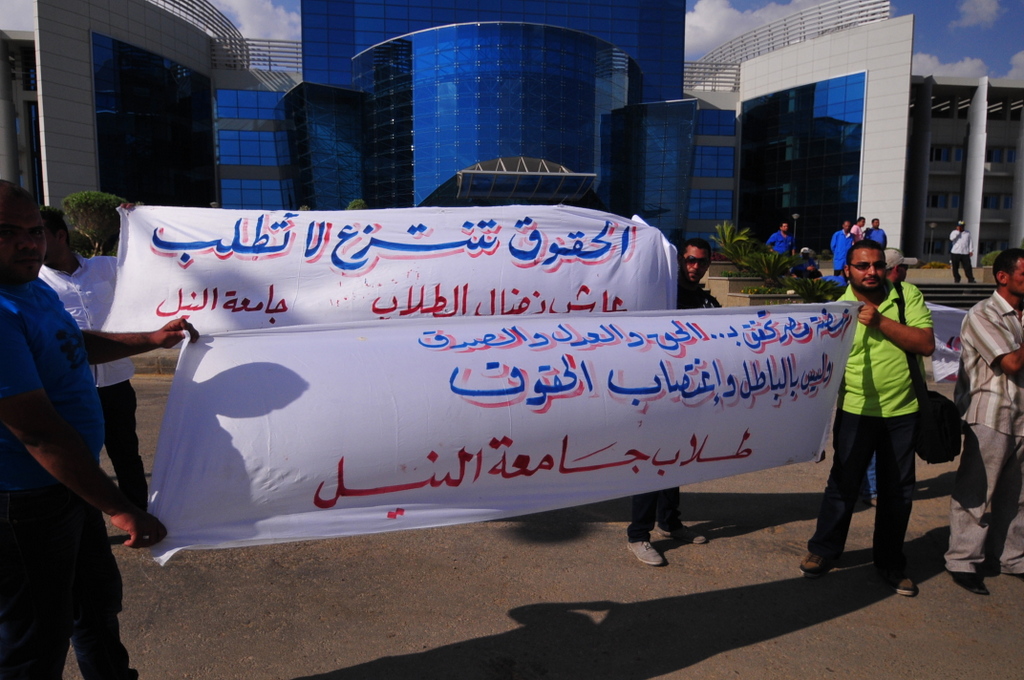Playing on an old piano at his grandfather’s house, young Mohamed Saleh developed an early passion for music – a passion that took years to blossom and more years of dedicated studying to be polished.
“My grandfather had an old piano at home which he had bought for decoration only, Saleh said. “Early on, I started playing anything that came to my mind.
In just over 10 years, Saleh had managed to grasp what pianists spend their entire youth painstakingly learning. But, it wasn’t until the age of 22 when he decided to go professional and make a career out of his hobby. True that the challenges were great at the Rimsky-Korsakov State Conservatoire, but his passion was greater.
“I studied for eight to ten hours a day, he said, “and spent the rest of my time on campus, either attending concerts or mingling with other musicians.
Among his colleagues was D.A. Tolstoi, the son of the legendary Russian novelist Aleksei Tolstoi, author of “War and Peace. Tolstoi gave Saleh a toccata – a virtuoso piece of classical music for a keyboard instrument or plucked string instrument – to play at the State Hermitage Museum in Russia.
“Music changed my views concerning everything, Saleh explained. “Music enables you to listen to the intonation of people, and feel their energy that you eventually translate into music.
Music has also changed his perception of time.
“Music is an art that flows with time. In other words, one minute is 60 seconds and seconds can be further divided into femto seconds. One second is one whole unit in music, and that made me adhere to a certain discipline in making good use of my time.
“Another thing that I acquired through music is that you get to work with other musicians, and that is a good exercise to get rid of dogmatic points of view, he said. “With time, I learned to let go of some of my views in order to work harmoniously with my colleagues.
One theory about playing the piano is that it increases the spatial reasoning – the ability to visualize spatial patterns and mentally manipulate them over time-ordered sequence of spatial transformations. Saleh agrees.
“The piano is a polyphonic instrument, and that widens your imaginative abilities, he said. “You start thinking or visualizing in three dimensions in space, and not in a linear manner.
Saleh’s strategy towards increasing the music awareness in Egypt seems simple. “We must discover early hobbies, nurture and encourage them. I recommend that a music school should be established and allow students to enroll at a young age, starting from four or five, to be able to develop their ability to comprehend music from an early age.
Saleh stressed that there should be more awareness about classical music through the media and educational institutions. Nevertheless, he thinks highly of the classic music scene in Egypt
“I personally believe that the music scene in Egypt is perfect; moving very fast and versatile in all performances, he said.
“Now we have three different orchestras: Cairo Opera Orchestra, Cairo Symphony Orchestra and the Alexandria Symphony Orchestra.
Furthermore, the International Music Center at Manisterly Palace is headed now by the well-known Egyptian pianist Ramzi Yassa. And last but not least, the Egyptian Philharmonic Society, which was established by the profound Egyptian conductor, Ahmed El Saedi.
SIDE BAR
. At the Faculty of Engineering, Ain Shams University, Saleh won several musical contests.
. In 1990, Saleh received a scholarship from the former Soviet Union to study at the Rimsky-Korsakov State Conservatoire, St Petersburg, where he studied piano, accompaniment and chamber music with V.A. Kalmykov.
. In 1996, he graduated from the Conservatoire and pursued his studies in composing.
. After obtaining a masters degree from St Petersburg, he worked as an assistant teacher at the University of Connecticut, where he also studied piano and chamber music with Neal Larrabee, performing the Khatchaturian Piano Concerto with the university orchestra.
. In 1998, he joined the Cairo Symphony Orchestra as a pianist, performing concerts and recitals.
. Saleh is also the Artistic Supervisor of the International Music Center at Manisterly Palace in El-Manyal, which is part of the Cultural Development Fund.

